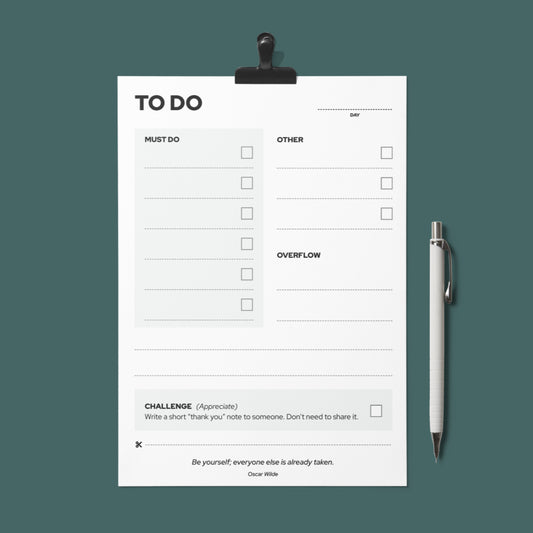In the fast-paced world we live in, where demands on our time seem to be ever-increasing, the ability to manage our days effectively has become a crucial skill. One powerful tool that can make a significant difference in our daily lives is the simple act of planning ahead and crafting a to-do list. In this blog post, we will explore the transformative power of these practices and how they can unlock a new level of productivity.
The Psychology Behind Planning
The act of planning ahead taps into the psychological principle of mental rehearsal. When we take the time to envision our day in advance, we are essentially preparing our minds for the tasks at hand. This mental rehearsal helps us approach our responsibilities with a clearer focus and a sense of purpose, increasing our chances of success.
Creating a to-do list goes hand in hand with this concept. By listing out our tasks, we are externalizing the mental clutter, freeing up valuable mental space. This not only reduces stress but also allows us to approach each task with a strategic mindset.
The To-Do List Advantage
To-do lists serve as a roadmap for the day. They provide a tangible, organized structure that guides us through our tasks. Here are some key advantages of using to-do lists:
Prioritization: To-do lists help us prioritize tasks based on urgency and importance. This ensures that critical tasks are tackled first, preventing the feeling of being overwhelmed by a mountain of responsibilities.
Time Management: Planning ahead allows us to allocate time wisely. By estimating the time required for each task, we can create a realistic schedule, making it easier to stay on track throughout the day.
Sense of Accomplishment: Crossing off completed tasks on a to-do list provides a sense of accomplishment. This positive reinforcement boosts motivation and encourages a proactive approach to the remaining tasks.
Adaptability: While planning is crucial, life is inherently unpredictable. To-do lists allow for adaptability. If unexpected challenges arise, having a list enables us to reassess priorities and adjust our plans accordingly.
Reduced Procrastination: A well-organized to-do list minimizes the likelihood of procrastination. Breaking down larger tasks into smaller, more manageable steps makes them less daunting, making it easier to get started.
Practical Tips for Effective Planning
Start the Night Before: Take a few minutes before bed to outline the tasks for the next day. This allows for a smooth transition into the morning, eliminating the uncertainty of where to begin.
Set Realistic Goals: Be realistic about what you can achieve in a day. Overloading your to-do list can lead to frustration and a sense of failure. Setting achievable goals promotes a positive mindset.
Categorize Tasks: Group similar tasks together to streamline your workflow. This minimizes the mental effort required to switch between different types of activities.
Use Technology Wisely: Leverage productivity apps and tools to enhance your planning process. Calendar apps, task management tools, and reminders can be valuable allies in your quest for productivity.
In a world where time is a precious commodity, the power of planning your day ahead and utilizing to-do lists cannot be overstated. These simple yet effective practices empower you to take control of your time, reduce stress, and achieve your goals with greater efficiency. Embrace the transformative potential of planning, and watch as your productivity soars to new heights.


